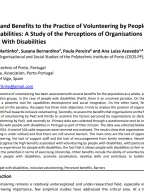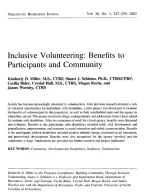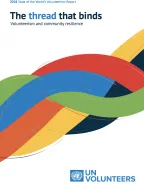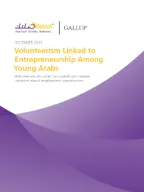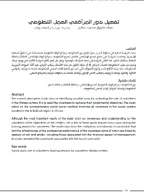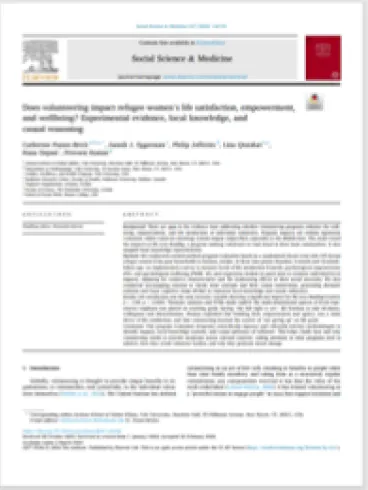
Technical paper
Does volunteering impact refugee women’s life satisfaction, empowerment, and wellbeing? Experimental evidence, local knowledge, and causal reasoning.
Volunteerism
Download
Fast read
This mixed-method study, conducted in Jordan, followed a cohort of Syrian refugee women over a one-year duration. It tested the impacts of We Love Reading, a program that trains volunteers to read aloud to children in their neighborhoods, on levels of life satisfaction, psychological empowerment and wellbeing. It also mapped what volunteers themselves thought of such constructs and causal relationships, namely, local knowledge representation.
Synthesis
- This study seeks to address gaps in the evidence base related to whether volunteering programs enhance the well-being, empowerment, and life satisfaction of individual volunteers. It examined the impacts of We Love Reading, a program training volunteers to read aloud in their local communities. It also mapped local knowledge representation.
- The mixed-method study is based on a randomized cluster trial with 105 Syrian refugee women from poor households in Amman, Jordan. At three time points (baseline, 5-month and 12-month follow-up), a survey to measure levels of life satisfaction, psychological empowerment, and psychological wellbeing was implemented. Regression models were used on panel data to estimate individual-level impacts, adjusting for women’s characteristics and the moderating effects of their social networks.
- The study finds that life satisfaction was the only outcome variable showing a significant impact for We Love Reading. Emphasis was placed on reaching goals, having “the full right to act,” the freedom to take decisions, willingness and determination. Participants explained that building their empowerment and agency was a main driver of life satisfaction, and that volunteering boosted the resolve of “not giving up” on life goals.













